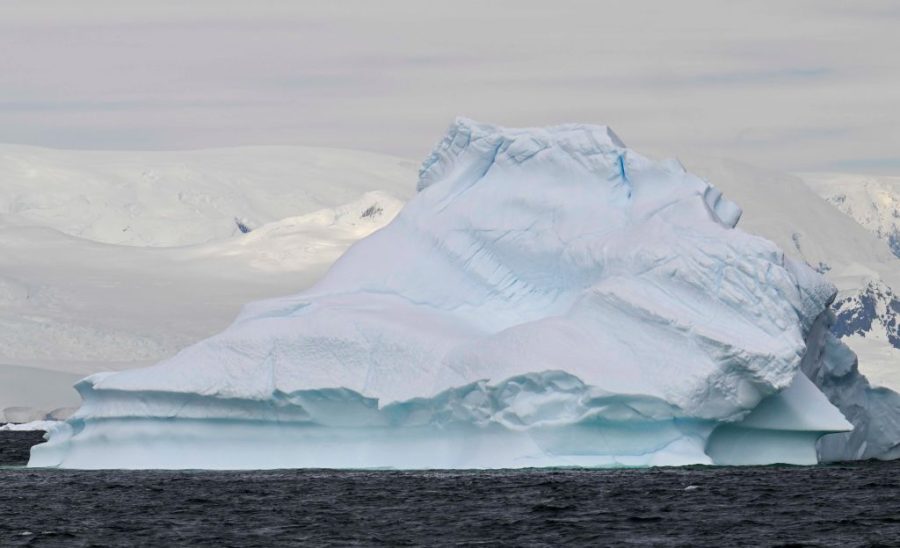Now that a deal has been struck with Mauritius over the Chagos Islands, the government’s focus should be on the UK’s southernmost overseas territories. There are three of them: the Falkland Islands, South Georgia and the South Sandwich Islands (SGSSI) and the British Antarctic Territory (BAT). As increasingly tense geopolitics make the world more hostile, these territories are becoming ever more vulnerable. If Britain wants to secure its presence here in the face of the looming shadows of Argentina, Russia, China and the US – to name a few – Labour urgently needs to start thinking about how it does so.
The Strategic Defence Review (SDR) for 2025 is expected to be published this coming week. It will reveal where the Labour government believes the future direction of the UK armed forces lies. In any strategic audit, crises and conflicts such as Ukraine will loom large, as will the Middle East. But the UK’s overseas territories will also continue to demand policy- and resource-related attention.
Any UK Antarctic strategy will need to grapple with some uncomfortable truths
In the final days of the last Conservative government, a commitment was made to publish for the first time the UK’s Antarctic strategy. Labour didn’t carry forward the pledge, almost certainly because it is focusing on the SDR. They would, however, be wise to consider publishing an Antarctic strategy this year.
For the last seventy years, the UK has enthusiastically supported the internationally agreed 1959 Antarctic Treaty prohibiting any military activity on the continent. This is because it provides a cost-effective mechanism for ensuring that the polar continent is kept demilitarised and largely informed by scientific decision-making and policy development. For many years, this worked well alongside a robust commitment to maintain a military presence in the Falkland Islands to ensure that Argentina was deterred. And yet while the Falklands and the other British overseas territories are separate, with their own distinct local governments, Argentina claims they belong to them. Chile’s Antarctic claim also overlaps with the BAT.
The challenge posed by Argentina in and around the Falklands has waxed and waned over time depending on the presidential leadership in Buenos Aires. What will be a source of concern, however, is the Chagos Islands deal. From the 1960s onwards, local communities in Gibraltar and the Falkland Islands were keenly aware that any apparent concessions on sovereign authority to either Spain or Argentina, respectively, could trigger consequences for other then-colonies.
Creditable deterrence remains a priority for those communities as well. As many Falkland Islanders recall, the decision to withdraw HMS Endurance in 1981 as part of that year’s defence review was perceived as a ‘signal’ that the UK was not serious about its presence in the South Atlantic. A year later, the Argentinian junta launched their full-scale invasion of the Falkland Islands and sought to take over South Georgia as well. Now, post-Chagos, the Falklands will be nervous that Argentina could try its luck once again.
Over in the BAT, if the UK is committed to maintaining its sovereign presence there, it needs to recognise explicitly that this region is changing rapidly. The Antarctic peninsula is warming and becoming increasingly ice-free. This means that third parties, including China and Russia, can operate for longer and more extensively.
In recent months, the UK and other allies have had to confront some uncomfortable realities. China and Russia are increasingly not inclined to support ocean conservation initiatives and China is pushing hard for further exploitation of fish and krill in and around the northern tip of the peninsula. Russia has flagged an interest in the mineral resource potential of Antarctica. All of this is going to place further stress and strain on the consensus-based model that is the Antarctic Treaty system. Argentina and Chile are digging in and remain committed to the southern edges of their national territories. Most unsettlingly, from the UK perspective, the US under President Trump is proving to be an unreliable partner, seemingly hell-bent on slashing its polar science and logistics budgets.
Any UK Antarctic strategy will need to grapple with some uncomfortable truths. Thanks to the British Antarctic Survey (BAS), based in Cambridge, the UK is one of the world’s most preeminent polar science powers with three research bases and two logistical facilities in the BAT. But this requires ship- and air-based support to maintain and support, with the most notable being RRS Sir David Attenborough. The Royal Navy’s HMS Protector, which is prone to breaking down, also supplements this effective presence.
In the next decade, however, this operating environment is going to be more challenging. The Antarctic peninsula will be busier. With that comes the risk of accidents, alongside the danger that rival parties miscalculate each other’s intentions and accidentally trigger escalation.
Deterring China and Russia was never going to be straightforward. China considers the Antarctic to be a strategic frontier, which contributes to its food security and economic advantage. It wants to recast the Antarctic Treaty system from one shaped by American diplomatic power in the 1950s and 1960s to one with a more distinct Chinese look and feel. Russia is a bad-faith actor which is currently trying to dismantle the ability of the South Georgia government to run its fishing licensing operation. Moscow has made baseless accusations about ‘illegal fishing’ and will try to discredit the UK’s claim to running a responsible living resource management.
Maintaining an effective presence in the southernmost UK overseas territories will require a clear-eyed assessment of risk and deterrence. There will need to be a long-term investment programme in science, logistics and manned and unmanned platforms. The BAS will need to work closely with the UK armed forces to ensure that air- and ship-based capabilities are used strategically. Ensuring a safe and effective scientific presence requires investment and vigilance. HMS Protector cannot be expected to travel back and forth between the Arctic and Antarctic. And we already ask a great deal of BAS personnel stationed in UK facilities with long deployments on physically remote Antarctic stations.
China, Russia and the United States have not made a formal claim to any part of the polar continent yet. But that could change in the Putin-Trump-Xi era when the great powers are calculating and negotiating their respective spheres of influence. So far, Donald Trump’s gaze has been northwards rather than southwards. One of those parties might decide to walk away from the Antarctic Treaty in the next three to five years and pursue their own agenda. Britain and allies including the EU, Norway and Australia will need to work hard to ensure that the treaty prevails.
If we want to make sure the UK stays both a polar science superpower and guardian of the BAT, ministers will need to recognise that operational capacity and scientific reach are under pressure in the region. Chile and Argentina are increasing investment in their Antarctic footprint, China is a major polar power, Russia will continue to be disruptive, and no one knows what will happen to America’s Antarctic operations. The government must publish a UK Antarctic strategy without delay.







Comments